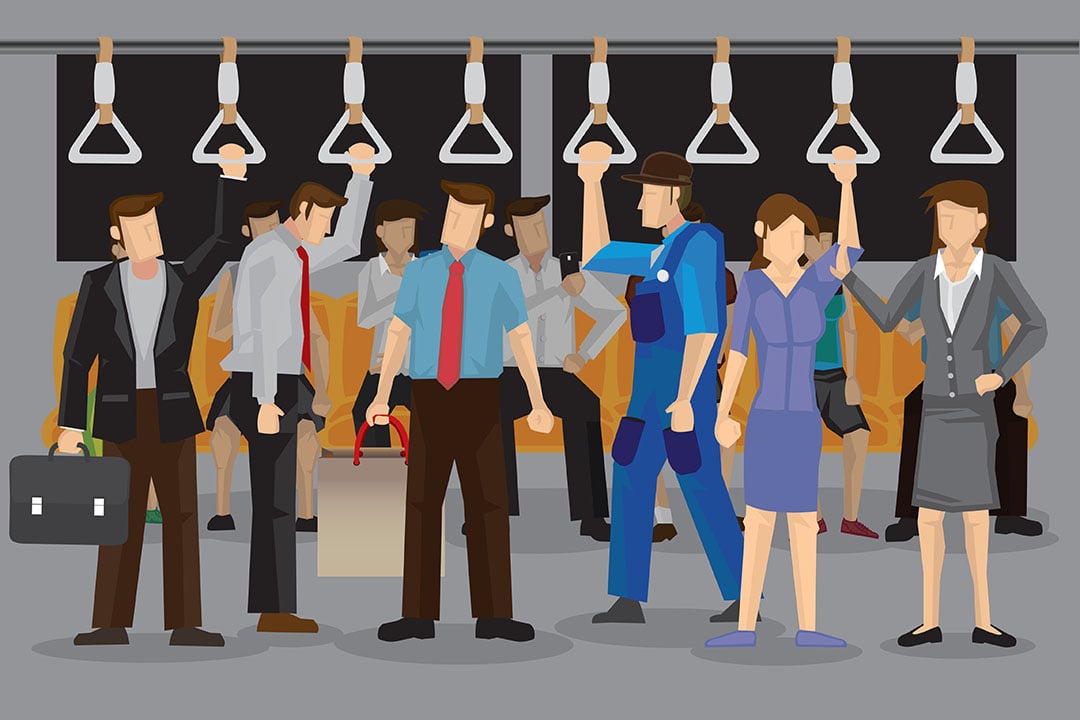
The MCTMT applies to your business if you’re withholding New York State income tax from wages and your payroll expenses exceed $312,500 in any calendar quarter.
Whoa, hold on a second! Does this mean I could face penalties for not paying?
Unfortunately, yes. And you’re not alone. Accountants and even payroll companies often drop the ball on the MCTMT! The reason for this might be that the tax rate is determined at the end of the quarter based on total quarterly wages. It’s one of those local taxes that gets lost in the shuffle.
Does the MCTMT apply to all of New York State?
No. The Metropolitan Commuter Transportation Mobility Tax is imposed on certain employers and self-employed individuals engaging in business within the Metropolitan Commuter Transportation District (MCTD). These districts include New York (Manhattan), Bronx, Kings (Brooklyn), Queens, Richmond (Staten Island), Rockland, Nassau, Suffolk, Orange, Putnam, Dutchess, and Westchester.
Is the MCTMT the same as the MTA tax?
Yes. People often refer to the Metropolitan Commuter Transportation Mobility Tax or MCTMT as the MTA tax. This explains why over 390 people search the term New York MTA tax return each month.
What does the MTA tax pay for?
The MTA tax provides funding for trains, ferries, subways, and other transportation services.
Contact Baron Payroll to spend more time running your business, and less time worrying about payroll tax compliance.
What is the MCTMT tax rate?
The highest rate is 0.34% For employers with payroll expenses in any calendar quarter between $312,500 and $375,000, the rate is 0.11%. Between $375,000 and $437,500 is 0.23%, and above $437,500 is 0.34%.
Is the MCTMT computed the same way for self-employed people?
No. Self-employed individuals with a net income of $50,000 and over must pay the top rate of 0.34%. However, self-employed people earning part of their income outside the MCTD can allocate their earnings accordingly, and hopefully, avoid paying the MCTMT.
Is there a specific New York State tax form for the MCTMT?
Yes. Use New York State MTA-305 Employer’s Quarterly Metropolitan Commuter Transportation Mobility Tax Return to file your MCTMT.
When are the MCTMT quarterly due dates?
The MTA-305 instructions provide these due dates:
- Quarter 1, January 1 – March 31 is due on April 30
- Quarter 2, April 1 – June 30 is due on July 31
- Quarter 3, July 1 – September 30 is due on October 31
- Quarter 4, October 1 – December 31 is due on January 31
- Due dates that fall on Saturday, Sunday, or legal holidays may be filed on the next business day
What does New York State consider payroll expenses?
According to the tax.ny.gov website, “payroll expenses generally mean a covered employee’s wages and compensation that are subject to either social security or railroad retirement tax, but with no annual cap applied.”
When are employee wages not considered payroll expenses?
In the above definition, “under IRC Section 1402, income from certain employment is treated as income from a trade or business and is reported on federal schedule SE as net earnings from self-employment. Accordingly, the income is included in an individual's computation of net earnings from self-employment allocated to the MCTD, and therefore, is not included in the employer's payroll expense.”
What types of excluded employment are included in IRC section 1402?
Types of employment treated as a trade or business under Internal Revenue Code section 1402 and aren’t considered employee wages include but are not limited to:
- services performed by a United States citizen employed by a foreign government, the United Nations, or other international organization
- services performed by a church employee if the church or other qualified church-controlled organization has a certificate in effect electing an exemption from employer social security and Medicare taxes
- qualified services performed by a minister, a member of a religious order who has not taken a vow of poverty, or a Christian Science practitioner or reader
What is the definition of a covered employee?
A covered employee is an employee whose services are allocated to the Metropolitan Commuter Transportation District (MCTD).
How do I know if an employee’s services are allocated to the MCTD?
There are four tests to help you determine this:
- Localization applies when an employee works entirely or partially within the MCTD.
- Base of operations applies when the employee customarily starts out to perform their functions in or out of the MCTD. It is not the place where the employee is continuously located. It's where the employee customarily returns to receive instructions from their employer, receive communications from other persons, replenish stock and materials, and repair equipment used to perform any other function necessary in the exercise of their trade or profession.
- Place of direction and control applies to the allocation of all services to the MCTD—if an employee's direction and control emanate from only the MCTD and the employee performs some services within the MCTD. Direction and control mean the place from which the employer directs and controls the activities of the employee. It is not necessarily the location of the principal office, but the point from which basic authority over the supervision of services emanates (for example, the place from which job assignments are made, and/or instructions issued, or the place at which personnel and payroll records are maintained).
- Residence applies when all the employee's services are allocated to the MCTD if the employee resides there and performs some services in the MCTD.
Taking care of your core business responsibilities while also functioning as a surrogate tax collection agency for New York State is a demanding and thankless task. Given this, one can’t blame employers for wondering if the New York State motto, Excelsior State (meaning an ever upward state) originated due to ever upward taxes!

